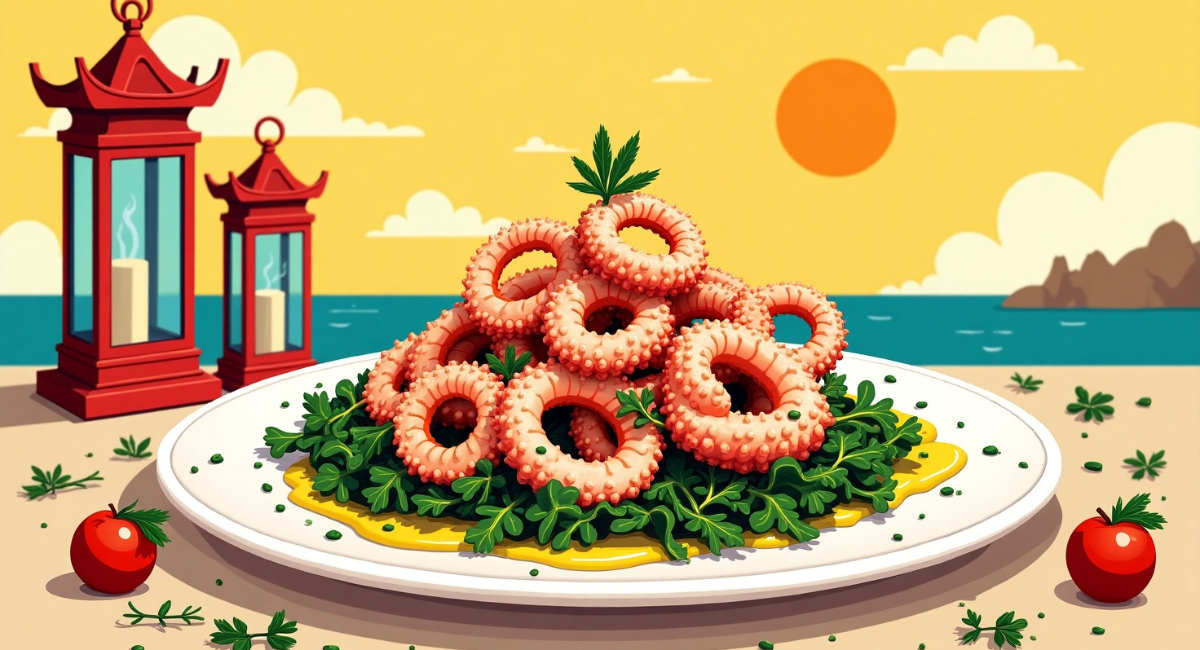The term “Calamariere” can refer to various concepts, primarily associated with calamari, which is the culinary term for squid. In a broader context, it may also denote equipment or vessels used in squid fishing, or even establishments specializing in seafood dishes featuring calamari. The versatility of the term reflects its significance in both culinary and commercial realms.
Origin of the Term
The cultural and regional ties of calamari are particularly strong in Mediterranean countries, where squid is a staple ingredient in many traditional dishes. The term “Calamariere” likely evolved from these linguistic and cultural influences, highlighting the importance of squid in various cuisines.
Purpose/Relevance
Calamariere holds relevance in multiple contexts, including culinary, commercial, and industrial. In the commercial sector, it pertains to the fishing and processing of squid, which is vital for many coastal economies. Understanding the term’s multifaceted nature is essential for appreciating its significance in today’s world.
Culinary Context
As a Dish
Calamari can be prepared in various ways, with popular methods including frying, grilling, and sautéing. Grilled calamari, marinated in olive oil and herbs, is a staple in Mediterranean cuisine. Recipes for calamari can vary widely, incorporating diverse flavors and cooking techniques that reflect regional culinary traditions.
As a Restaurant
Many specialty seafood eateries feature calamari prominently on their menus. These establishments often focus on fresh, high-quality seafood, providing diners with a range of calamari dishes. From casual beachside shacks to upscale dining experiences, restaurants that highlight calamari contribute to the dish’s popularity and cultural significance.
Cultural Significance
In Mediterranean cuisine, calamari holds a special place, often associated with coastal dining experiences and communal meals. It is a symbol of the region’s rich maritime heritage and culinary traditions, celebrated in various festivals and gatherings.
Fishing & Seafood Industry
Role in Squid Fishing
If referring to equipment or vessels, “Calamariere” may denote the tools and boats used in squid fishing. Squid fishing is a significant industry in many coastal regions, employing various techniques and technologies to catch this popular seafood.
Processing Calamari for Commercial Use
Once caught, calamari undergoes processing for commercial use, which includes cleaning, cutting, and packaging. This process is crucial for ensuring the quality and freshness of the product, making it available for restaurants and consumers alike.
Key Regions Known for Calamari Production
Regions such as the Mediterranean, particularly countries like Italy, Spain, and Greece, are renowned for their calamari production. Additionally, areas in Asia and the Americas also contribute significantly to the global supply of squid.
Business/Brand Spotlight
Overview of a Specific Calamariere Business
One notable business in the calamari industry is “Calamariere Seafood Co.,” which specializes in providing fresh and frozen squid products. This brand focuses on sustainable fishing practices and high-quality seafood offerings.
Products/Services Offered
Calamariere Seafood Co. offers a range of products, including fresh and frozen calamari, calamari rings, and prepared calamari dishes. They also provide dining experiences at their seafood restaurant, showcasing their products in various culinary applications.
Market Presence
With a strong local presence, Calamariere Seafood Co. has expanded its market reach globally, supplying restaurants and retailers with high-quality calamari products. Their commitment to sustainability and quality has garnered a loyal customer base.
Cultural or Regional Significance
Traditions or Festivals Linked to Calamari
In many coastal towns, calamari is celebrated during local festivals, where seafood is the star of the show. Events often feature calamari cooking competitions, tastings, and cultural performances, highlighting the dish’s importance in community traditions.
Economic Impact in Fishing Communities
It provides jobs, supports local economies, and fosters a sense of identity tied to maritime heritage.
Challenges & Considerations
Sustainability Issues
The calamari industry faces sustainability challenges, including overfishing and the need for eco-friendly practices. As demand for calamari grows, it is essential to implement responsible fishing methods to protect squid populations and marine ecosystems.
Consumer Trends
Consumer trends indicate a rising demand for calamari, but there is also a growing interest in plant-based alternatives. As more people seek sustainable and ethical food options, the industry must adapt to changing preferences.
Future Trends
Innovations in Calamari Production
Innovations in seafood production, such as lab-grown squid, are emerging as potential solutions to sustainability challenges. These advancements could revolutionize the industry, providing consumers with environmentally friendly options.
Growing Popularity in Global Cuisine
Calamari’s popularity continues to rise in global cuisine, with chefs experimenting with new flavors and cooking techniques. As culinary trends evolve, calamari is likely to remain a beloved dish on menus worldwide.
Conclusion
Summary of Key Points
In summary, “Calamariere” encompasses a rich tapestry of meanings, from culinary delights to commercial significance. Its relevance spans various contexts, including the fishing industry, cultural traditions, and dining experiences.

